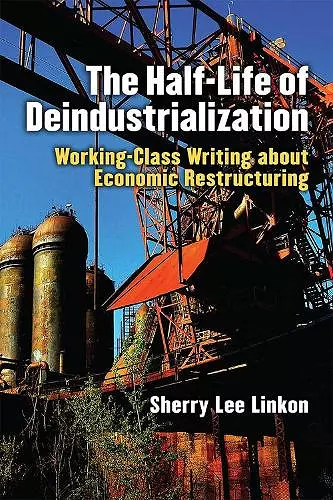The Half-Life of Deindustrialization
Working-Class Writing about Economic Restructuring
Format:Paperback
Publisher:The University of Michigan Press
Published:23rd Mar '18
Currently unavailable, our supplier has not provided us a restock date

Starting in the late 1970s, tens of thousands of American industrial workers lost jobs in factories and mines. Deindustrialization had dramatic effects on those workers and their communities, but its longterm effects continue to ripple through working-class culture. Economic restructuring changed the experience of work, disrupted people’s sense of self, reshaped local landscapes, and redefined community identities and expectations. Through it all, working-class writers have told stories that reflect the importance of memory and the struggle to imagine a different future. These stories make clear that the social costs of deindustrialization affect not only those who lost their jobs but also their children, their communities, and American culture.
Through analysis of poetry, fiction, creative nonfiction, film, and drama, The Half-Life of Deindustrialization shows why people and communities cannot simply “get over” the losses of economic restructuring. The past provides inspiration and strength for working-class people, even as the contrast between past and present highlights what has been lost in the service economy. The memory of productive labor and stable, proud working-class communities shapes how people respond to contemporary economic, social, and political issues. These stories can help us understand the resentment, frustration, pride, and persistence of the American working class.
An important and timely contribution to studies of working-class culture in this period of economic and social transformation."" - Nick Coles, University of Pittsburgh
""Linkon’s compelling study opens up a new set of texts and new critical problematics—the aftermath of downsizing, the impact of neoliberalism on everyday life, the politics of memory—with great verve and insight."" - Joseph Entin, Brooklyn College
ISBN: 9780472053797
Dimensions: unknown
Weight: unknown
218 pages